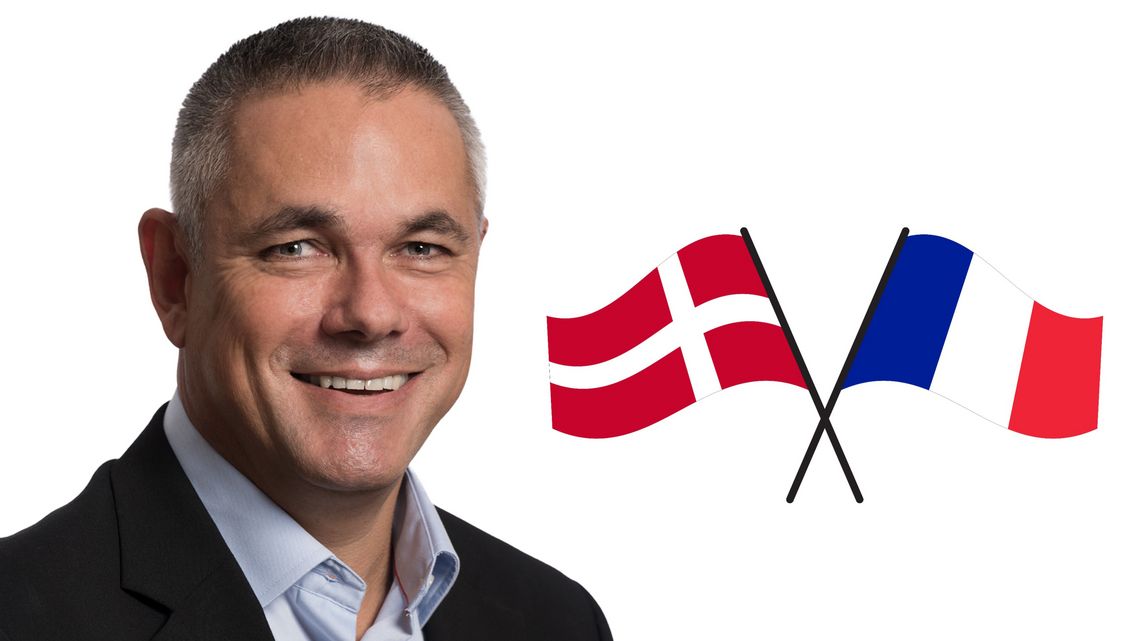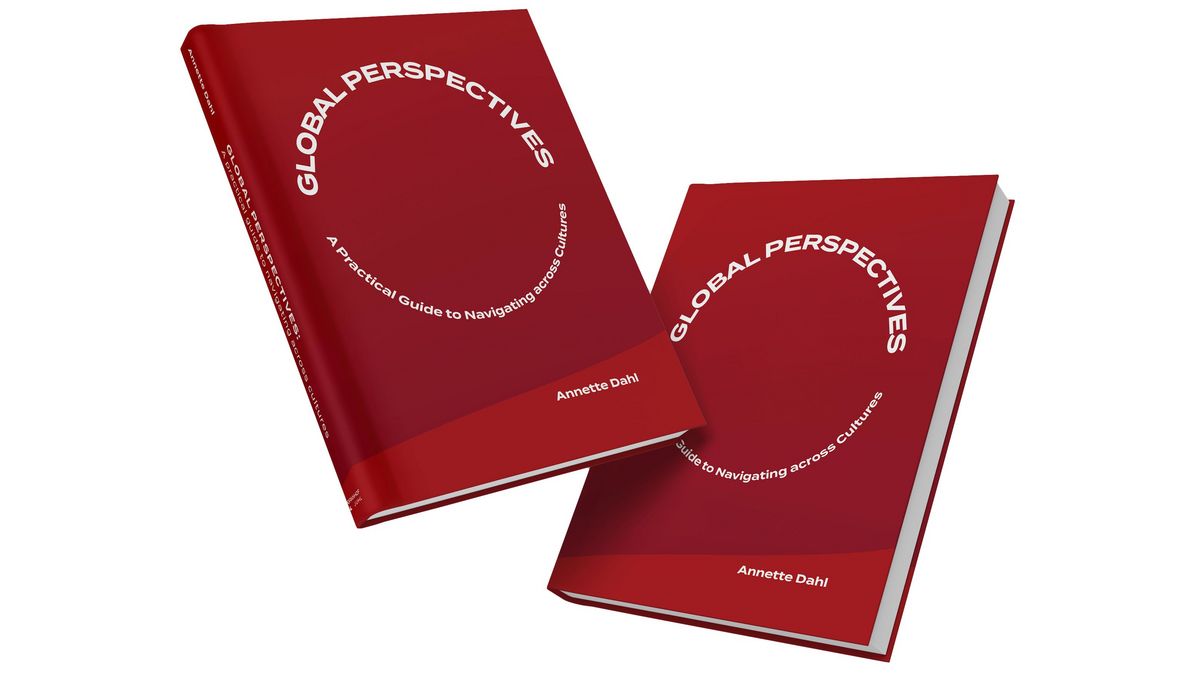
French and Danish Business Culture: 3 Differences You Should Be Aware Of
In this blog post, our France country specialist, Frédéric Bernard, points out 3 key differences between French and Danish business culture. He also gives concrete tips on how you, as a Dane and a French person, can make Danish-French collaboration go as smoothly as possible.
Frédéric Bernard spent the first 25+ years of his life in France where he grew up and completed a PhD in physics. The following 25+ years have been spent in Denmark where he has gained over 20 years of experience from management positions in Danish-based healthcare companies.
Frédéric feels French when he is in Denmark – and Danish when he is in France...
With this special ‘cultural cocktail’, Frédéric has made bridge-building between Danish and French business culture his specialty.
He advises on setting up in France, optimizes collaboration between Danish and French business partners, and prepares managers and employees who are to be posted to France.
In this blog post, he points out 3 important differences between Danish and French business culture.
Now it’s over to Frédéric…
1. Danish task focus vs. French relationship focus
Recently, I became involved in a project at a Danish company that has a new French business partner – let's call him André.
I’d spoken to André on the phone a few times, and I could tell that he was a little uncertain about what role I would play in the project and a little cautious about sharing information with me.
I mentioned it to the director of the Danish company – let's call her Lene. We agreed that, as André would soon be visiting Denmark, Lene should arrange for the three of us to meet so that André and I could get to know each other and build up trust.
Subsequently, Lene sent me a calendar invitation to meet with her and André for half an hour in one of the company's meeting rooms.
I couldn't help but smile. Because there was something very typically Danish about Lene’s approach to relationship building!
So, something along the lines of:
"Okay, I know that it’s important to strengthen personal relationships when dealing with French business partners. So, we’ll slot that in from 9:15 to 9:45, and then it's done so we can get on with our project.”
The typical Danish approach is that you focus on the task itself rather than on the person you’re working with. You’re confident that your new business partner will do their job properly. And spending energy on getting to know each other before getting down to business would be seen as a waste of time by many Danes.
In France, most people start somewhere else. I need to get to know you so I can be sure that I can trust you before we enter into closer collaboration. Relationship building is not a nicety just as a matter of formality; it is the very foundation for good collaboration.
Here are a few quick tips for what you, as a Dane and a French person, can do to establish productive collaboration built on trust with your French/Danish counterpart.
Tips for Danes who collaborate with the French:
- Focus on building personal relationships with your French business partners and factor in that you will go to France to meet them face-to-face.
- When French business contacts are visiting you, set time aside to meet in a more informal setting (rather than your company's meeting room). Plan a good business lunch somewhere out in the city. Allocate plenty of time for lunch – at least an hour. Use the time to get to know each other, and don’t expect to just talk business.
- Be prepared for things to take longer in the beginning than you’re used to. And remember that it's probably not because your French business partners are ‘passive’ – they just have a different way of building trust. The time you invest in relationship building is time well spent, as it will create a stronger working relationship in the long term.
Tips for French people who collaborate with Danes:
- Be aware that your Danish business partners are probably very ‘time conscious’. An important part of Danish cultural self-understanding is that you ‘get to the point’ and don't spend a lot of time on small talk.
- If your Danish business partners immediately throw themselves into the task at hand rather than spend time getting to know you, remember that this is typically not because they’re ‘cold’ or that they mistrust you. On the contrary, it’s because they trust you from the start.
- It is perfectly okay to invite your Danish business contacts to lunch if they visit you. But try to keep lunch short. And don't take it personally if a Dane starts looking impatiently at the time during lunch; many Danes are used to a maximum of 30 minutes for lunch, and business lunches are often handled by wheeling a tray of sandwiches into the meeting room...
2. Danish egalitarianism vs. French respect for hierarchy
Here’s another story from the real world that shows some important Danish-French cultural differences:
A Danish company collaborated with a French customer on a major project over a long period.
The project is almost done; just one small detail is missing. The Danish company has therefore sent an invoice for the project to the French customer's project manager, whom we’ll call Danielle here.
But now the Danes are greeted by radio silence. For several months. Most recently, the Danish CFO emailed Danielle that if nothing happened soon, the case could end up in court. Fortunately, the Danish company gets hold of me before it comes to that!
I call Danielle and introduce myself as an assistant to the Danish project manager, so that she and I are on the same hierarchical level. It only takes me two phone calls to straighten things out, so that the missing detail in the project is dealt with and the invoice is paid.
What went wrong?
The problem initially arose from the pending detail in the project. And when the Danish managers emailed Danielle, who as a project manager was at a much lower hierarchical level than them, it caused her to shut down completely. She shouldn't get involved in that matter at all, it was too dangerous; the managers needed to fix that themselves.
As in many of the French-Danish collaborations I have come across over the years, things here had come to a head due to there being cultural differences that neither party had acknowledged!
With this in mind, here are a few tips that will make it easier to navigate everyday Danish-French collaboration.
Tips for Danes who collaborate with the French:
- Respect hierarchy in French companies. If you need to contact a manager at a French business partner, make sure that it’s a Danish manager at the same level who initiates contact.
- Be aware that decision-making processes in French companies are far more hierarchical and centralized than in Danish companies. It is the managers, often at the highest levels, who make the decisions.
- If you, as a Danish employee, have a French manager, keep them informed on an ongoing basis about where you are in relation to your tasks – instead of just getting on with things and only informing them when the task is complete, which may be typical in a Danish context.
Tips for French people who collaborate with Danes:
- Be aware that most Danish companies have a very flat structure. This means that the division of responsibilities is not always as clear as in French companies; sometimes it’s the manager who makes decisions, other times it may be a team who collectively decide.
- If you, as a French employee, have a Danish manager, they’ll probably expect you to run with the ball when you’ve been given a task. And if you run out of tasks, the expectation will typically be that you’re ‘proactive’ and start something new yourself, rather than waiting for the manager to give you a new task.
- If you, as a French manager, have Danish employees, consider whether you need to adjust your style to align with Danish egalitarian culture. In Denmark, there is a widespread attitude that no matter if you are queen, prime minister or chief executive, you should keep both feet on the ground and not think that you are better than the rest of us. So many Danes have a hard time with formal titles and forms of address and risk losing respect for a manager who they think takes themselves too seriously!
3. Danish 'start-with-the-conclusion-approach' vs. French 'tell-me-why approach'
Let’s say you’ve laid out a strategy at your corporate headquarters and now you have to visit your global subsidiaries to present it.
You’re responsible for the presentation. How will you approach it?
- Do you want to start by outlining the most important goals in the strategy?
- Or do you want to start by going through all the details that you researched and discussed before you set the strategic goals?
If you have a Danish background, you might think that the most important thing is to ‘get to the point’ right away and present the strategic goals. A detailed explanation of how management arrived at those goals is not that important, and you don't want to drown the audience in detail.
If you have a French background, you’ll probably prefer to start with the basis for the management’s decisions: What data have you analyzed? What methods did you use? What arguments and counterarguments were made? Only when the foundation is in place do you present the final conclusion: the strategic goals.
Please note that when I talk about a Danish ‘start-with-the-conclusion-approach’ vs. a French ‘tell-me-why approach’, it is not about either/or.
Regardless of which work culture you have a background in, you’ll probably want to know what the conclusion is and that it’s based on a solid foundation.
But there can be very different opinions about the order in which the two parts should be presented and how much each of the two parts should take up in the presentation.
Also note that when I describe the Danish work culture being characterized by a ‘start-with-the-conclusion-approach’, it is in comparison with the French work culture.
Compared to other work cultures, it can look completely different. For example, there will probably be Americans who think their Danish colleagues go into too much detail and take a long time to ‘get to the point’!
Having said all that, here are a few quick tips on how you can best convince Danish and French colleagues, respectively, to back your recommendations, ideas or strategic goals.
Tips for Danes who collaborate with the French:
- When making a presentation to a French audience, be sure to build your case from the ground up. Start by going through the analyzes you have made, how you have weighed up different factors in relation to each other, etc. And then finally present a conclusion about the whole thing. So your French business partners know that you have things under control.
Tips for French people who collaborate with Danes:
- When you do a presentation for a Danish audience, feel free to start with the most important conclusions and save the details for the end – perhaps there’s no need for them at all.
- And the other way around: If you have doubts about whether your Danish business partners have done proper preparatory work because they’ve not presented you with the reason behind a decision, ask them. More often than not, there will be thorough preparatory work behind it, even if the Danes have not chosen to tell you about all the ‘building blocks’.
What are you and your business partners’ ‘cultural cocktails’?
In this blog post, I have described 3 areas where there are important differences between Danish and French business culture.
I can guarantee that it is differences that are often the issue in Danish-French collaboration.
Does my description match your specific French/Danish colleague, manager or business partner exactly?
I can’t guarantee that!
Because we all have our very own ‘cultural cocktails’ from our past that are not only influenced by our national-cultural background, but also by our professional background, the industries we’ve worked in and which generation we belong to.
For example, today there is a movement in French business culture, where the younger generations prefer less hierarchy, place greater emphasis on feedback and have a different tone of voice than the older generations.
In addition to that, we all have our own unique personalities and preferences.
So, the most important thing when working across cultures is that you maintain an open and curious approach. If a business partner acts in a way that surprises you, try to examine what is behind those actions and how they make sense from your business partner’s perspective.
And remember that cultural differences aren’t about the right or wrong way of doing things – it's about different ways of doing things.
Enjoy!
Where to go from here
Should Frédéric help you to establish good collaboration between Danish and French colleagues and business contacts?
- Read about our country-specific training programmes here
- Contact us for a chat about how we can meet your needs for French cultural training
Want more tips on how to work effectively across cultures?
- Follow us here on LinkedIn
- Sign up for our newsletter using the form below

